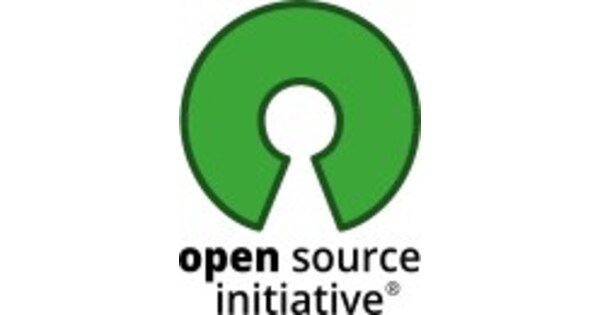






The ongoing battle between open source and 'sort of' open source has been a long-standing issue in the software industry. Some licenses allow companies to use open source code in proprietary programs, blurring the lines between open source and closed source [3ca68872]. One popular business model, known as open core, has seen a shift towards source-available models, where companies offer a limited version of their software for free but charge for additional features or support. This approach has raised debates about the true nature of open source and whether it is being compromised for profit [3ca68872]. Even Red Hat, a prominent open source company, has been moving away from its original principles in order to increase profits [3ca68872]. The battle between open source and 'sort of' open source continues to shape the software industry and raises important questions about the future of collaborative development and the balance between openness and commercialization [3ca68872].
Bruce Perens, one of the founders of the Open Source movement, is working on the Post-Open Source movement. He believes that the current open source licenses are not working effectively and that new approaches are needed [5beb381e]. Perens highlights several pressing problems in the open source community, including loopholes in licenses and the failure to serve the common person. He proposes the concept of Post-Open, which would define a new corporate relationship with developers and ensure fair compensation. Perens suggests that companies should fund developers who create user-friendly applications and that a simple compliance process should be established. He also criticizes non-open source licenses, such as the Commons Clause, for misrepresenting and abusing the open-source brand [5beb381e].
Perens believes that the General Public License (GPL) is insufficient for today's needs and advocates for enforceable contract terms. He also raises ethical concerns about compensating original content creators in the age of AI and calls for a more civil and cooperative approach to sharing technology between the US and China [5beb381e].
Linus Torvalds, the visionary behind Linux and Git, continues to influence the spheres of open-source software, artificial intelligence (AI), and digital security. Open source remains at the heart of Torvalds’ philosophy. His commitment to Linux over the past three decades underscores a vibrant community that thrives on collaboration. AI’s integration into open source is a testament to the community’s adaptability and forward-thinking approach. Security within the Linux ecosystem is a continuous concern, with Torvalds often expressing frustration over complications in improving Linux’s security framework. Trust is a pivotal element of Torvalds’ leadership, mirrored in his management of a vast, global developer community. As AI becomes increasingly embedded, Torvalds’ vision for a more secure, open-source, and collaborative future remains relevant. [12c5a7e3]
The Open Source Initiative (OSI) is embarking on a roadshow of workshops to refine its working definition of open source AI. The goal is to gather input on the draft definition from diverse stakeholders and present a stable definition at the All Things Open conference in October. The roadshow, sponsored by the Alfred P. Sloan Foundation, will visit multiple locations across five continents. The OSI believes that everyone deserves agency and control over technology and that clear definitions promote transparency, collaboration, and innovation [3a5ddc05].
The OSI is driving a global multi-stakeholder process to define 'Open Source AI.' The goal is to provide a framework for AI developers and users to determine if an AI system is Open Source or not. The OSI has been engaging key players, including corporations, academia, the legal community, and organizations, in a collaborative effort to draft a definition of Open Source AI. The project has gained importance as legislators around the world started regulating AI. The OSI is embarking on a worldwide roadshow of workshops to refine and validate the release candidate version of the Open Source AI Definition. The workshops will be held on five continents, and the goal is to present a stable version of the definition in October at the Open Source Summit in Raleigh, North Carolina. The roadshow is sponsored by the Alfred P. Sloan Foundation and OSI's sponsors and donors. The schedule of workshops includes North America, Europe, Asia Pacific, and Latin America. The OSI believes that everyone deserves to maintain agency and control of AI technology and that clear definitions promote transparency, collaboration, and permissionless innovation [1a408b77].
OpenAI, a prominent AI company, has recently faced criticism regarding its use of artists' work to build its foundational models without consent or compensation. OpenAI announced the upcoming release of Media Manager, a tool that claims to allow creators to control how their work is used. However, this does not address the fact that OpenAI built its models using authors' and creators' works without permission. OpenAI and other generative AI companies have been urged to obtain creators' consent and refrain from using works without compensation. OpenAI has faced legal action from authors and copyright owners, including a class action by visual artists and a lawsuit by music publishers. The CEO of the Authors Guild calls for creative professionals to demand what they are owed and determine their own futures [ab15f08d].
Some members of the creative community are unhappy about Apple's lack of transparency around the raw information powering its generative AI model. Artists, authors, and musicians have accused generative AI companies of profiting off their work without compensation. Apple has revealed very little about the source of training data for Apple Intelligence, only stating that it grabs public data from the open web using its purpose-made web crawler, AppleBot. The company has not responded to specific questions about its data collection practices. The lack of transparency has disillusioned some loyal Apple users in the creative community, who feel betrayed by tech companies prioritizing their bottom line over the lives of their users. [2f8bfc0d]
The author of the Medium article 'Something is Wrong' shares their experience attending a Microsoft event in Chennai and expresses their dissatisfaction with the focus on Microsoft products and the lack of knowledge about competitors. They criticize the speakers for promoting Microsoft and not being transparent about the source of their AI products. The author also discusses the importance of open source and encourages a broader view of technology. They mention their transition from promoting AWS to being an open source enthusiast and their current involvement in developing a proprietary SaaS product using open source tools. The author concludes by expressing hope for open source AI products to compete with proprietary ones [8b31e600].